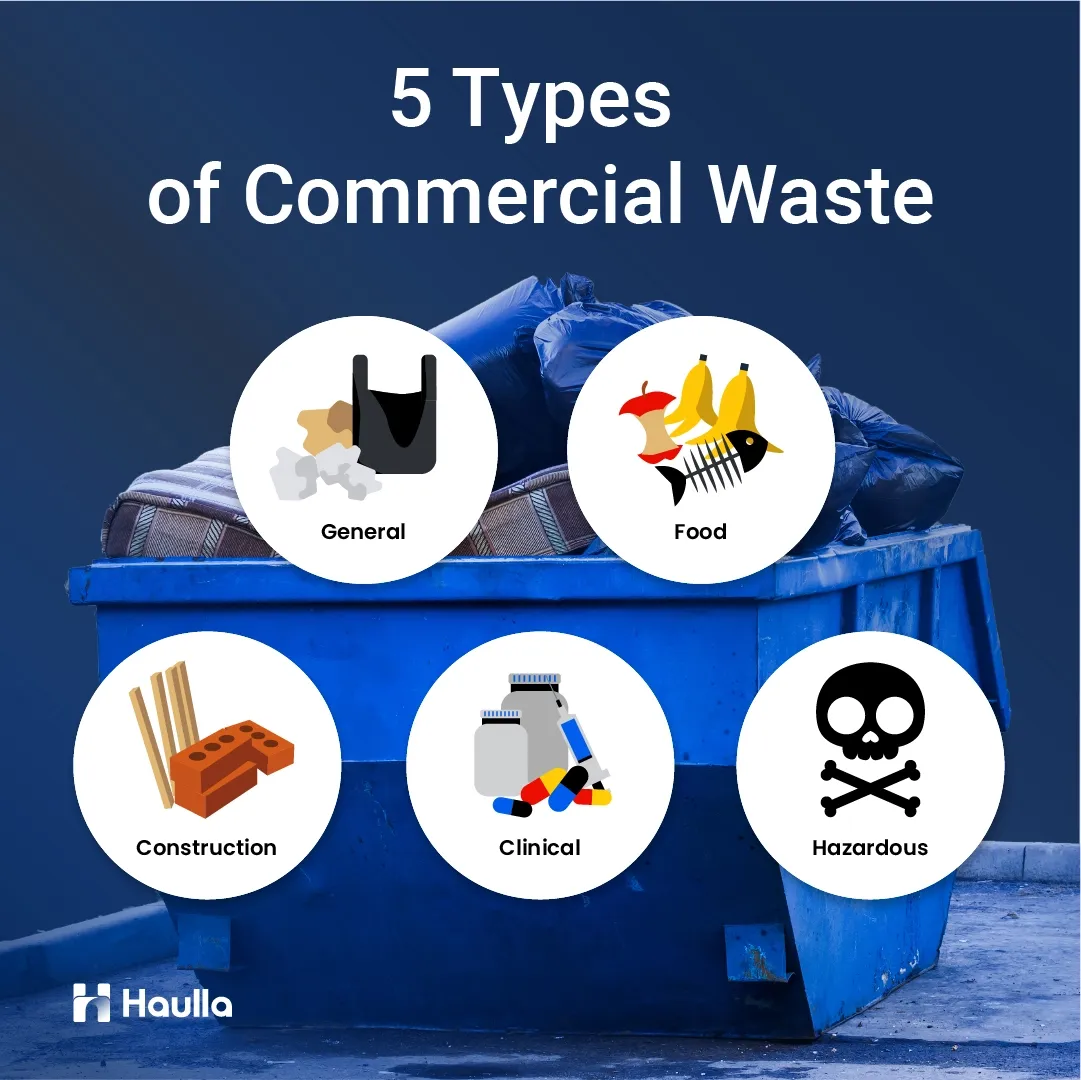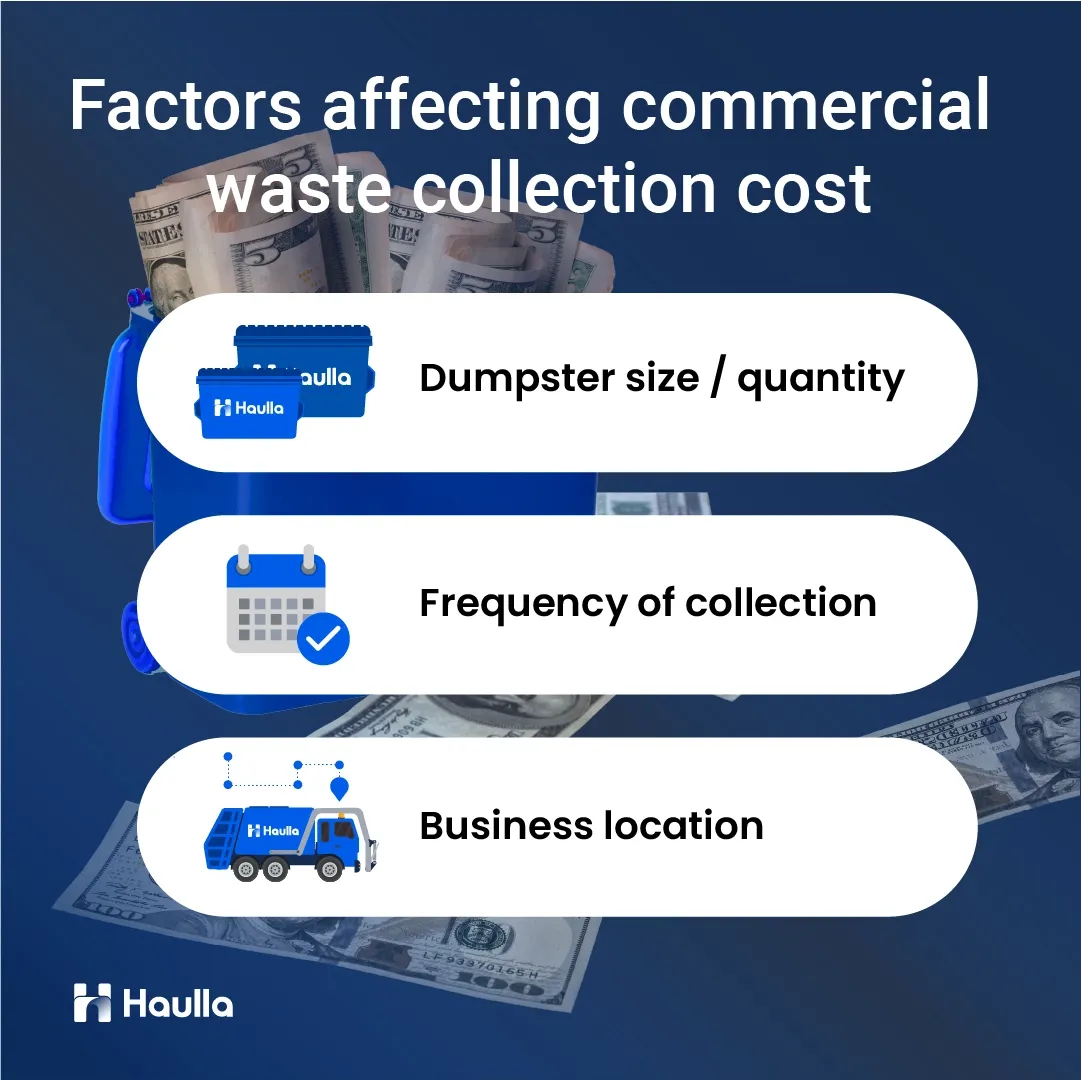Everything You Need To Know About Commercial Waste Collection
August 11, 2021
Commercial waste management is an important part of running a business. Whether you're a small business owner or a large corporation, you need to have a plan in place for how to deal with the waste your business produces.
There are many different options for commercial waste collection, and the right choice will depend on the waste and recycling needs of your business. Some businesses opt for traditional waste management services, while others take advantage of recycling services.
There are also many different ways to dispose of commercial waste, so it's important to research all of your options before making a decision. The most important thing is to find a commercial waste management plan or a recycling program that works for you and your business.
By taking the time to develop an effective commercial waste management strategy, you can ensure that your business runs smoothly and efficiently.
What is Commercial Waste?
Most people are familiar with the idea of household waste - it's the stuff that goes in our garbage cans and trash bins, and that we generally try to get rid of during spring cleaning.
Commercial waste is similar, but as the name suggests, it comes from businesses. This can include anything from office waste to manufacturing waste, and it can be generated by both large and small businesses.
One of the key differences between commercial waste and household waste is that businesses are generally required to follow strict waste management guidelines.
This means that they need to think carefully about how they dispose of the special waste, and they may need to use specialized disposal methods.
As a result, commercial waste can be a more complex issue than household waste, and businesses need to make sure that they're aware of all the relevant regulations.
What is Commercial Waste Collection?
Commercial waste collection is a service provided by many waste management companies. It involves the regular pick-up and disposal of commercial garbage, such as office waste, retail waste, industrial waste, and construction waste.
Commercial waste collection services are typically tailored to the specific needs of a business and can include scheduled pick-ups, on-site commercial recycling services, and special disposal options for hazardous materials.
In addition to helping businesses keep their premises clean and tidy, commercial waste collection can also help to reduce environmental pollution by ensuring that waste is disposed of in a responsible manner or handed off to commercial recycling services if needed.
What are the types of commercial wastes?
There are five main types of commercial wastes: general, food, construction, clinical, and hazardous wastes.

Commercial businesses generate all five types of waste, so it's important to have a plan for disposing of each type safely. Here is a detailed look at the further sections of waste that fall under the main categories of commercial trash.
- General waste
Commercial wastes come in many forms - from the paper and plastic waste produced by office buildings to the food waste generated by restaurants. While some general wastes can be recycled or reused, much of it ends up in landfills.
- Food waste
There are many types of commercial waste, but food waste is one of the most prevalent. Food waste can come from a variety of sources, including restaurants, grocery stores, and even farms.
According to the Environmental Protection Agency, food waste includes any food that is "spoiled, damaged, or unsellable." This can include food that is past its expiration date, damaged in transport, or rejected by retailers.
- Construction waste
Construction waste is waste that is generated by construction activities, including concrete, steel, wood, bricks, tiles, and so on. It can't be simply thrown away with the rest of your trash. Instead, it must be disposed of at a special facility that is equipped to handle construction materials. At most construction sites, roll-off containers are used to collect waste. Disposing of construction waste can be more expensive than other types of commercial waste. However, it's important to dispose of it properly to protect the environment and prevent injuries.
- Clinical waste
Clinical waste is waste that comes from healthcare facilities like hospitals, clinics, and doctor's surgeries. It includes things like used bandages and syringes, as well as human tissue and body fluids.
Because of the risks of disease transmission posed by clinical waste, it must be disposed of carefully. There are strict guidelines on how it should be stored, transported, and treated before it is finally disposed of.
- Hazardous waste
Hazardous waste is any solid, liquid, or gaseous waste that can cause harm to human health or the environment. Hazardous wastes can come from a variety of sources, including manufacturing facilities and retail businesses.
Some common examples of hazardous wastes include acids, bases, reactive chemicals, toxics, flammable liquids, solvents, and heavy metals.
What is the responsibility of businesses toward commercial waste management and collection?
Commercial businesses have a responsibility to manage their waste in an effective and safe manner. There are many ways to go about this, but one of the most important is to ensure that waste is properly sorted and collected. This means businesses should have a system in place for separating recyclable materials from general waste. In some cities, such as Austin and San Diego, all businesses must collect organic waste separately. Business owners should be aware of such laws, so that they won’t be fined for not recycling. Once the waste has been sorted, it will be sent to the appropriate facilities for collection and disposal.
Many large businesses opt for dumpster rental services for optimal waste removal instead of outright purchasing industrial dumpsters. Many other industries prefer sustainability and efficiency by complying with environmental services and opting for recycling collected waste.
In addition to sorting waste, businesses should also take care to reduce the amount of commercial trash they produce in the first place. This can be done through recycling programs, composting initiatives, and reducing packaging. By taking these steps, businesses can play a major role in protecting the environment.
What is the average cost of commercial waste collection in the US?

The average cost of commercial waste removal and collection services in the US is $50-$200 per month.
However, there are a number of factors that can affect this price, including the location of your business, the amount of waste you generate, the frequency of waste pickup, and the size and quantity of dumpster you require.
Elements like waste transport, landfill fee, trash container capacity, and such also impact the average cost of waste collection. However, if you join Haulla, you don’t have to worry about such factors since we have no hidden fees and no surprise charges for our waste management services.
How can Haulla help with Commercial Waste Collection?
Many companies find themselves stuck in unreasonable contracts with overcharging trash collection services. Not to forget unreliable trash pickup services and follow-up visits.
We provide the lowest prices for commercial waste collection and we can help you shift to more cost-efficient options. Plus, our customer service doesn't disappoint, resolving issues smoothly for a fulfilling service experience.
For further assistance with our commercial waste management solutions, feel free to mail us your queries or visit our website for more information.
